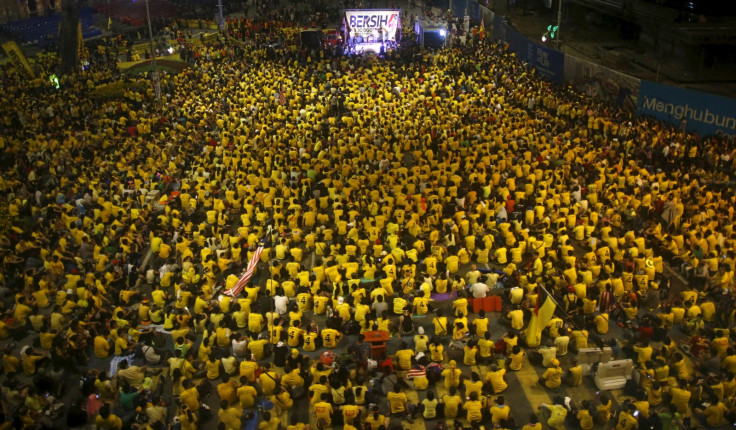Malaysia PM Najib Razak refuses to quit calling protests 'haram'

Malaysian Prime Minister Najib Razak has refused to step down calling the latest pro-democracy protests "haram". Addressing Malaysians on the eve of the country's independence day, the premier appealed for calm.
Urging the people to use the ballot box to judge the government, Razak said the protests revealed the "shallowness of patriotism". His remarks came on live television instead of the conventional recorded broadcast for the occasion.
Tens of thousands of yellow-clad Malaysians took to the streets in Kuala Lumpur demanding Razak's resignation after leaked documents indicated alleged high-level corruption involving him. He is accused of siphoning off hundreds of millions of dollars of public money. Razak denies the allegations.
He said: "Before I make a further statement, I appeal to all, especially those here, either sitting here or standing that without wasting time, let's focus our attention on silence and ponder and close our eyes.
"The fact that we are gathered here peacefully is a testament to the leadership of the country as well as those defending the safety of the country. That is why we are against any demonstrations."
As the demonstrations gained momentum, former Malaysian prime minister Mahathir Mohamad, 90, and his wife made a surprise appearance and joined the protesters. Mohamad, a highly popular prime minister who help Razak to come to power, told reporters at the rally: "The only way for the people to get back to the old system is for them to remove this prime minister. And to remove him, the people must show people power. The people as a whole do not want this kind of corrupt leader."
Brushing aside the calls for his resignation, Razak, flanked by his wife, participated in a parade to mark the country's independence from Britain. The parade was attended by more than 10,000 people.
© Copyright IBTimes 2025. All rights reserved.






















